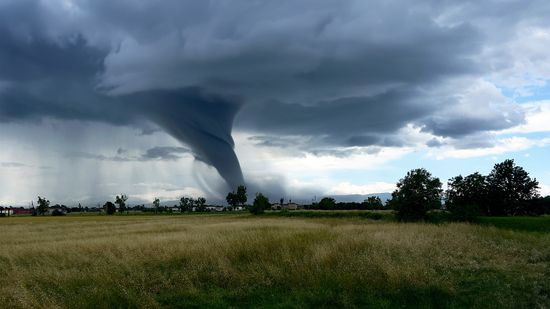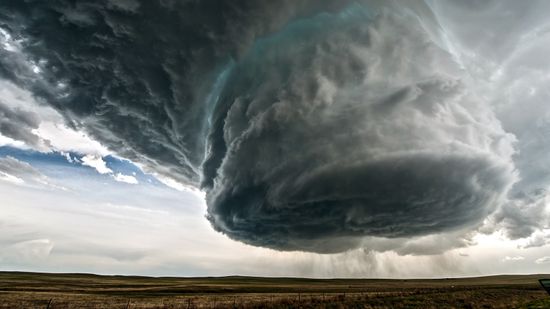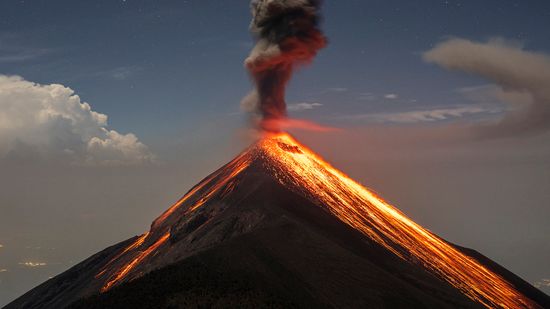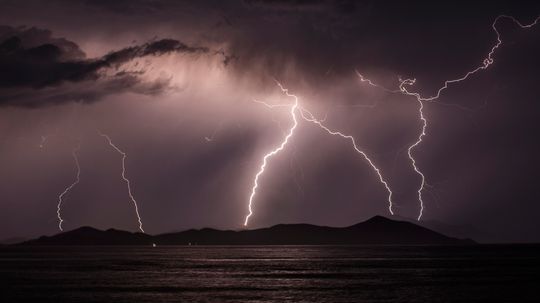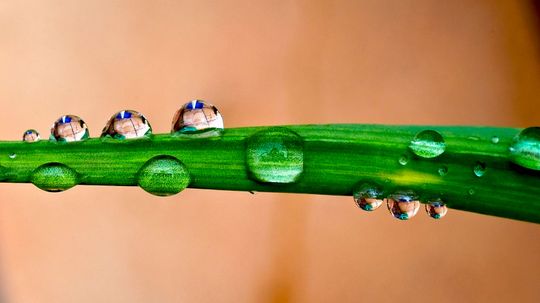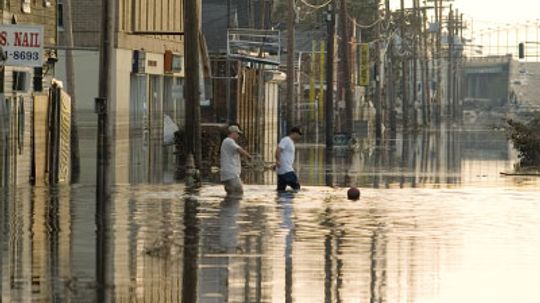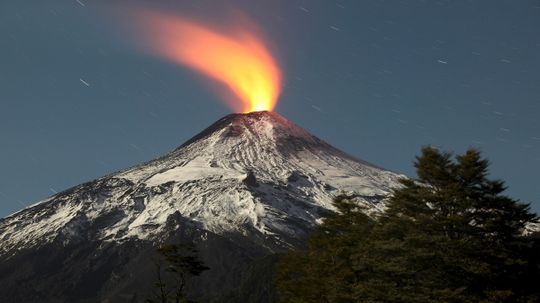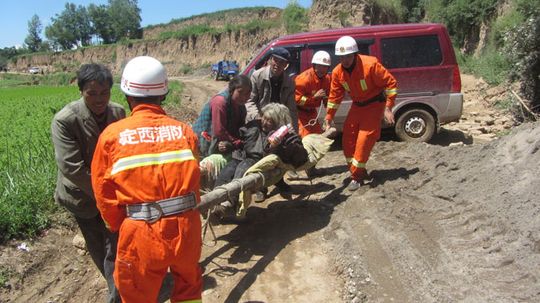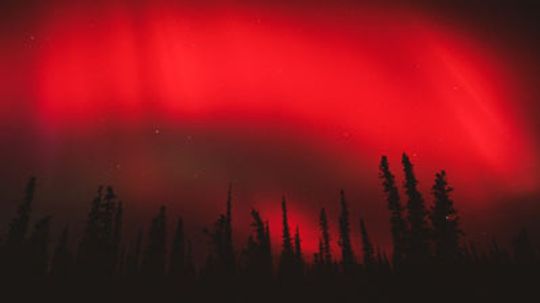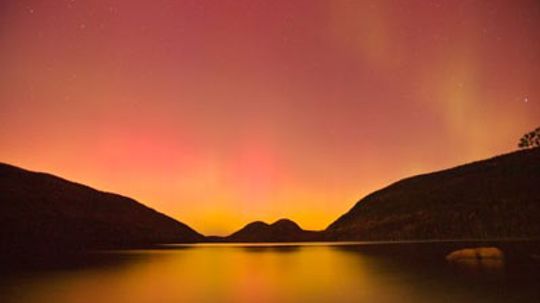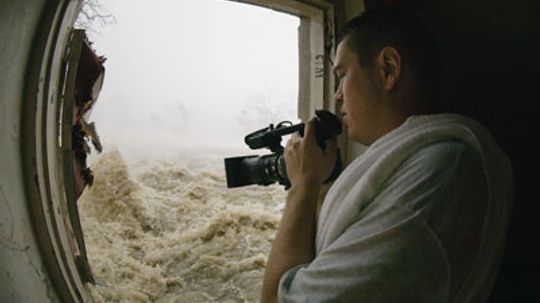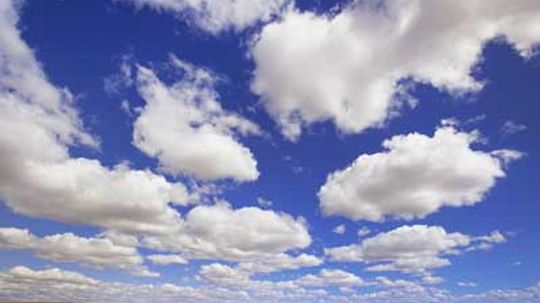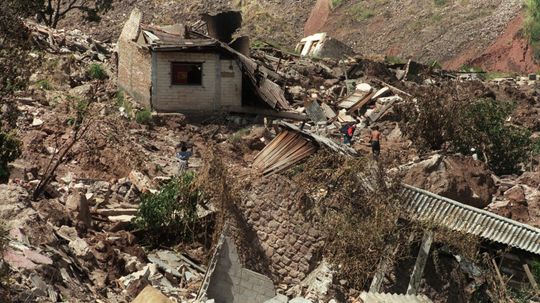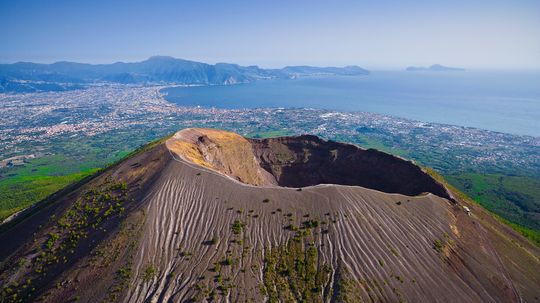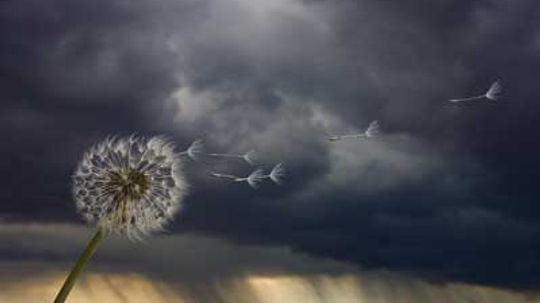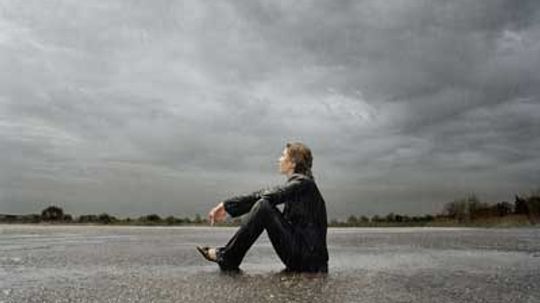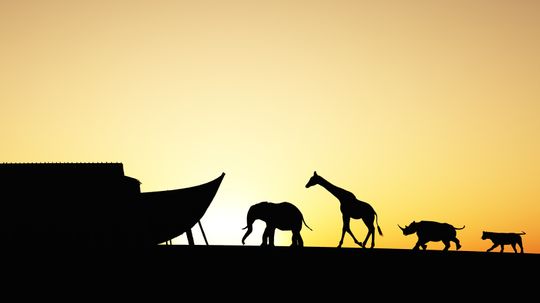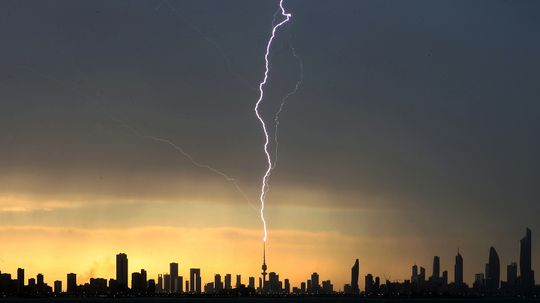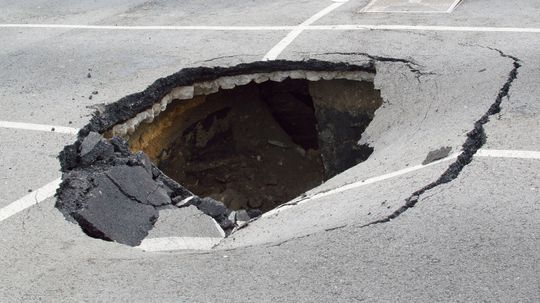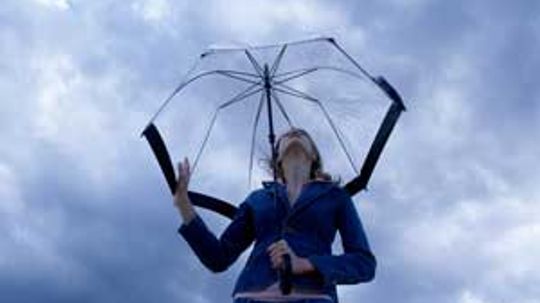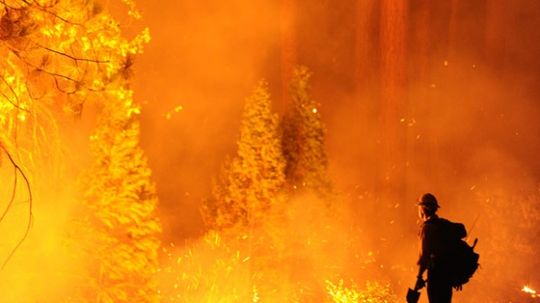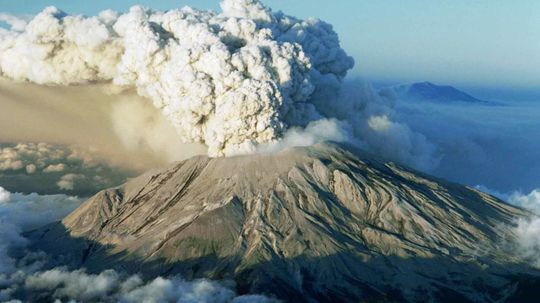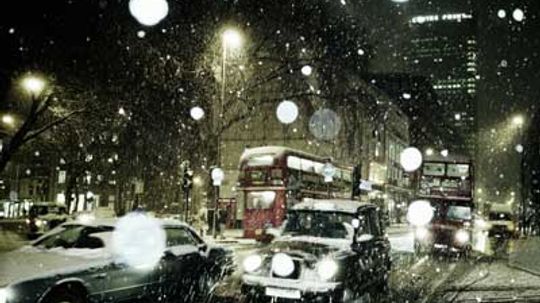Forces of Nature
We see the destruction that the Earth can unleash in the news on a regular basis. Here you can learn about hurricanes, tornadoes, earthquakes and other forces of nature.
Learn More / Page 4
Around 1,800 thunderstorms are occurring on the Earth at any given time. But how do they form, and what causes them?
We hear about humidity in just about every weather report on the nightly news. There are several different ways meteorologists measure humidity, but relative humidity is the most common measurement. What is relative humidity, though?
Flooding has claimed more lives than any other natural disaster. Find out how a gentle stream becomes a raging torrent.
By Tom Harris
Advertisement
Volcanoes are some of nature's most awe-inspiring displays, with everything from exploding mountaintops to rivers of lava. Learn how all the different types of volcanoes work.
By Tom Harris
An earthquake is one of the most terrifying phenomena that nature can dish up. We generally think of the ground we stand on as "rock-solid" and completely stable. An earthquake can shatter that perception instantly, and often with extreme violence.
How does the aurora borealis (the Northern Lights) work? What causes it? Why can you only see it in the North? Are the myths about it producing sound true?
Auroras are stunning natural light shows that are visible only in certain parts of the world at certain times of the year. Where can you go to see one?
Advertisement
If a tornado was heading your way, you'd probably head for the hills. But for some people, it's just the beginning of a chase.
Did bunnies just attack that sailboat, or was it a narwhal playing with a school of fish? Are you going crazy, or are you just watching the clouds?
Witch homicide aside, Dorothy was lucky that her home safely traveled to Oz after the tornado. Many people who lived through the storms on our list were left with nothing.
Mount Vesuvius, located near Naples, Italy, is one of the world's most iconic active volcanoes, renowned for its historic eruption that buried Pompeii. Discover its history, significance, and natural beauty.
Advertisement
The birds stop chirping, and the wind chimes are silent. This eerie calm that's invaded your neighborhood is just a temporary pause before the shrills and shrieks of the incoming storm.
You might think of weather as something that happens around your life. It could prevent you from taking a bike ride or inspire you grab an umbrella on your way out. But there's more to weather than its ability to thwart the best-laid plans.
By Robert Lamb
Ball lightning can float through the air, pass through walls and even kill you. What could it be, and why are scientists finally accepting this strange meteorological phenomenon?
Many cultures have a flood myth -- an ancient story of a deluge that swallowed the Earth. So could a great flood really have happened, and how would we be able to tell?
Advertisement
It may seem like a perfectly reckless display of aeronautical wiles, but guiding an airplane into a swirling beast of a hurricane gleans data that can save lives. The only question is, who were the crazy mavericks who attempted it first?
By Josh Clark
Being struck by lightning is a little more complicated than a sudden collision with a flash of light from the sky, and not all strikes are equally lethal.
We tend to think of the ground beneath our feet as terra firma, but sometimes it's as stable as a house of cards. What happens when the Earth opens up to swallow homes, cars and people?
Whether you're planning an outdoor wedding or a Saturday morning tag sale, it's nice to know ahead of time what the sky is going to do. But does checking the 10-day forecast do any more good than praying for sunshine?
By Robert Lamb
Advertisement
Barometers are used to predict the weather. What exactly does it mean when the weatherman says the barometer is rising or falling?
Rock salt is the go-to for melting ice on the roadways. But why?
If the big one struck, would you be ready? No? Then start reading and stocking up on food, water and other essential supplies. And hurry up. For some of you, it's not "if" but "when."
At some point in your life, a coach may have enthusiastically told you to "fight fire with fire." Coach, of course, was speaking metaphorically. Do firefighters actually employ this strategy?
By Robert Lamb
Advertisement
Folks in Montana usually expect snow or rain to fall from the sky, not ash. But the 1980 eruption of Mount St. Helens in Washington flung ash across state lines. What is this gritty, gray stuff?
By Robert Lamb
Before barometers and thermometers, people looked to the land and local lore to predict rain or shine. Have sophisticated statistical models and measuring tools changed the art of forecasting the weather that much?
By Robert Lamb



